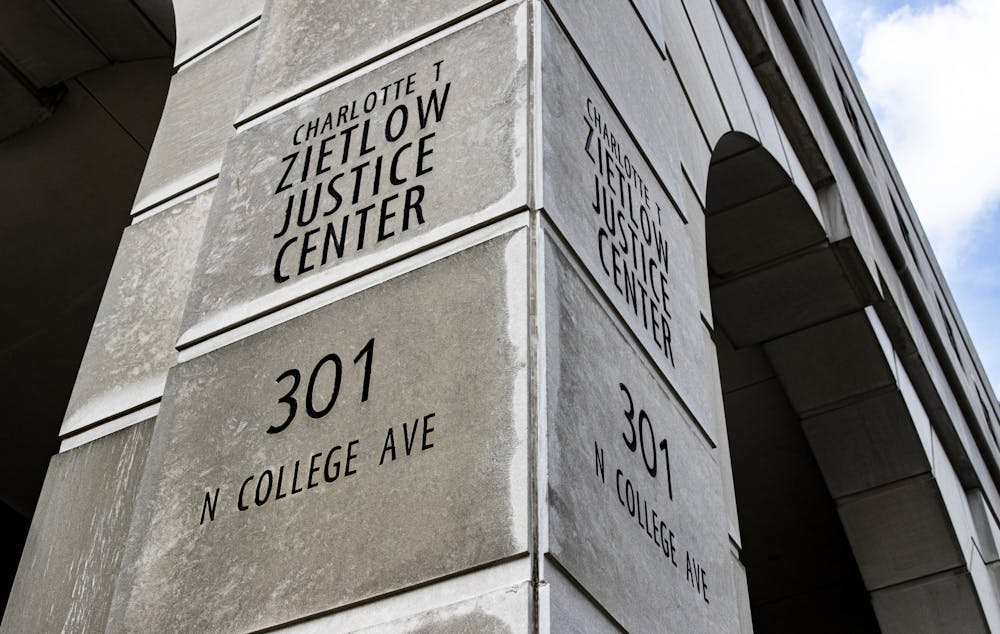As Indiana rolls out the COVID-19 vaccine for older populations and essential workers, some local sheriffs and advocates are encouraging the state to also vaccinate people who are incarcerated.
Some states, such as New York and Oregon, recently began vaccinating incarcerated people who are older than 65 or have preexisting conditions. Annie Goeller, chief communications officer at the Indiana Department of Corrections said in an email only inmates who fall under the Indiana State Department of Health’s protected categories have been vaccinated.
As of Feb. 5, 540 eligible incarcerated people have been vaccinated following ISDH guidelines, she wrote. However, Indiana has not included incarcerated people as a protected category in distribution plans as a whole, despite giving priority to other congregate settings such as nursing homes in January. Monroe County Corrections Center has not distributed any vaccines, Monroe County Sheriff Brad Swain said.
Related:[More than 50% of Hoosiers over 65 have scheduled or received first dose of COVID-19 vaccine]
Research from healthypeople.gov — a website from the Office of Disease Prevention and Health Promotion — shows incarcerated people are especially vulnerable to disease. Swain said he thinks COVID-19 is common in jails and prisons because social distancing is difficult to implement with a large number of people residing in close quarters.
“There is a serious flaw in confining people inside rather than encouraging them to be outside, and certainly a detention facility would be a serious breeding ground to spread COVID,” Swain said.
The Monroe County Corrections Center doesn’t have many inmates older than 65, Swain said. However, he said many incarcerated people are obese and lack vitamin D, which he said are also risk factors for COVID-19. Still, the correctional center had avoided COVID-19 until a few inmates tested positive about a month ago.
The center has had a handful of COVID-19 cases out of about 220 inmates, according to Swain. Swain praised the precautions the jail is taking, such as placing people who are incarcerated in quarantine blocks for 10 days when they’re first booked in and using sanitation processes including ultraviolet light sources to disinfect spaces.
Swain said high positivity rates in facilities are the reason he’s encouraging the state to vaccinate inmates.
In an informal survey done at the Monroe County Corrections Center, only about 25% of people incarcerated at the jail were willing to receive the vaccine, Swain said. He said he speculates they might be worried about the vaccine’s efficacy or side effects.
He said if the vaccine was opened up to people in jails and prisons, he would not mandate it. Instead, the facility would utilize an incentive program by granting incarcerated people who agree to get the vaccine credit on their commissary accounts to buy items they want or bringing food from outside restaurants.
Swain said he wants to ensure people who are incarcerated are able to receive a second dose of the vaccine if they are relocated or released back into the community. He said he has reached out to the Indiana Sheriff’s Association to make plans for when vaccinations become available for those who are incarcerated.
Jane Henegar, executive director of the American Civil Liberties Union of Indiana, said people who are incarcerated should be more highly prioritized because they often go into prisons with the same health issues that would make them eligible outside the facilities.
“Almost nobody in jail or prison has been given a death sentence, and often by not vaccinating them, keeping them in poor conditions, we fear that’s the sentence,” she said.
Henegar said incarcerated people have an infection rate 83% higher than the state’s as a whole. She said the pandemic has highlighted disparities in health care and economic equality around the country, and people who are incarcerated should be treated the same as everyone else.
“Treating people who are incarcerated differently because they are incarcerated isn't consistent with the humanity that’s required of all of us during this unprecedented time,” Henegar said.




